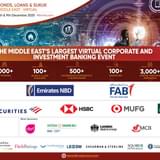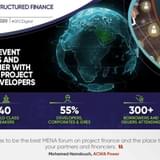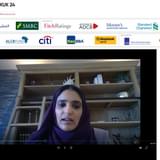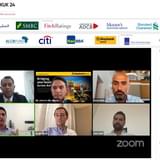A recent Reuters poll of 14 leading fund managers found 21% expect to cut back their allocations to Middle East fixed income in the next three months, while just 14% expect to raise them.
The same poll last month found 21% anticipated reducing their fixed income allocations with 29% increasing them, suggesting a degree of attrition.
The poll was published as some of the region’s top FIs and corporates hit the market, generating strong orderbooks, with more supply in the pipeline.
Emirates Islamic Bank priced a US$250mn retap of an existing Islamic bond issued in May. The orderbook on the retap, which priced at MS+170bp, swelled to over US$706mn, the bank said, below the MS+220bp price on the initial deal. Saudi Arabia's Bank Al Bilad priced a SAR2bn (US$533mn) 10-year sukuk at 200bp above the three-month Saudi interbank offered rate in a private placement.
Qatar National Bank just priced a benchmark-sized 5-year notes in a deal arranged by Barclays, HSBC, Mizuho, Mitsubishi UFJ Securities, Standard Chartered, and QNB Capital, while Qatar Islamic Bank priced a QAR2bn (US$549mn) Basel III-compliant Additional Tier 1 perpetual sukuk this week in a bid to enhance the bank's capital ratios.
Sharjah Islamic Bank is out marketing a benchmark-sized US dollar-denominated sukuk, Emaar Properties has reportedly mandated 10 banks to manage the sale of a benchmark-sized dollar denominated bond, and NBAD is in talks with investors about the bank’s inaugural green bond as it looks to beef up its sustainable financing activities.
One investor who spoke with Bonds & Loans said many of the country’s issuers are keen to hit the market in advance of any potential move by the Fed on interest rates.
“The Middle East is a big dollar market, so what you’re seeing is a lot of issuers keen to get ahead of the Fed, while investors are looking to see if the extra pickup from a rate hike will come through,” he said.
“The books on the deals out in the market have been solid, but it has been a strong year so far in terms of volume and a lot of the new liquidity is coming from non-Islamic countries in Asia, which haven’t historically been big buyers of Middle Eastern paper.”
Meanwhile, the dollar dropped 0.18% to the euro on the back of disappointing non-farm payroll data released in the US today. Official data showed the US economy added 151,000 jobs last month, slowing sharply from the previous two months and short of the 173,000 gain forecast in recent weeks, pushing the prospect of a US rate hike beyond September.









